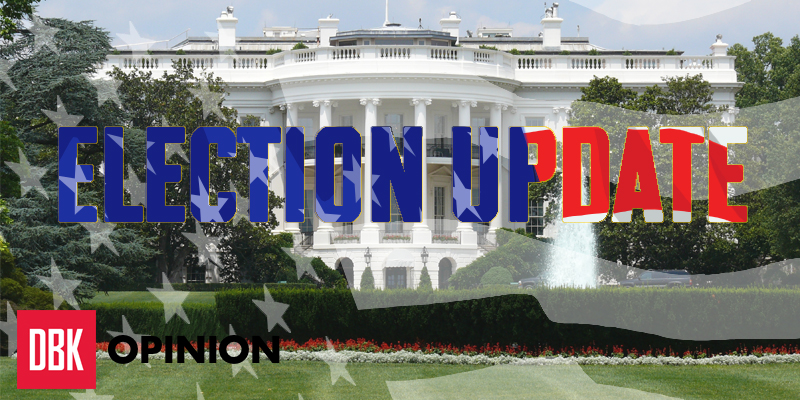South Carolina: How times change. The first time a Republican was elected president, South Carolina decided to start a war with the North. But now, South Carolina might very well have determined the GOP nominee for president — or at the very least, narrowed the field to a manageable number. Donald Trump won, followed closely by Sens. Ted Cruz and Marco Rubio, and he did so in a heavily evangelical and conservative state. Now, Republicans must decide how to consolidate support to defeat Trump — who is extraordinarily unpopular with Republicans who don’t support him. Rubio might be the candidate, but party leaders are growing increasingly frustrated with Trump’s outsider success.
Nevada: Former Secretary of State Hillary Clinton defeated Vermont Sen. Bernie Sanders by about five percentage points in the Saturday caucuses. Clinton was expected to win, but her victory was a lot narrower than what was expected a few months ago. The relatively close defeat keeps Sanders competitive, but it does put pressure on him to do well on Super Tuesday. Clinton’s victory in Nevada shows the importance of party connections and organization, which are essential in a Democratic primary.
This week’s winners & losers
Winner: Hillary Clinton. Bernie Bros won’t be happy about this. But let’s face it: Clinton and her husband, former President Bill Clinton, have an unstoppable network of support from key leaders — political, religious and civic alike. Nevada shows her strength in the party, particularly in minority communities. Her campaign actually pressured the Las Vegas casinos to offer paid leave for workers to caucus. She’s not invincible and her nomination is not a given. But it’s clear Clinton has the wind at her back heading into Super Tuesday.
Whiner: Donald Trump. Why engage with the Pope? Why with Apple? Look, you can’t call for a boycott of Apple by tweeting from your iPhone. And I was just waiting for Trump to say “the Catholics love me, not the Pope.” Sure, he won South Carolina, bolstered by disaffected voters and people wanting someone who “tells it like it is.” But he won a small plurality, not an overwhelming majority as his boasting would have you think. The key is consolidating support as the field narrows — a far more difficult challenge. To counter this issue, Trump has decided to attack his opponents’ right to run for president. Rubio, born in the United States to legal residents, is Trump’s next target. Also, those “Make America Great Again” hats? They’re made by Mexican immigrants, courtesy of the North American Free Trade Agreement that Trump dislikes so much.
Loser: Jeb Bush. After spending millions of dollars in advertising and dragging his mother and former-president brother on the campaign trail, Bush flopped in South Carolina. Bleeding money, support and hope, Bush withdrew from the race for the good of just about everyone (except Trump and comedians). It remains to be seen whom he will endorse, if anyone. Rubio and John Kasich will fight for his remaining supporters, but his loss will simplify the Republican primaries. And by doing so on an election night, he makes one last dig at Donald Trump by taking the election headlines.
Loser: Bernie Sanders. Sanders is by no means out of this race, but no amount of spin will be able to hide the fact that Clinton won decisively in Nevada. Sanders needs to reach older and minority voters, and he needs to do it soon. Entrance polling showed African-Americans favoring Clinton by a 54 percentage point margin — backed by her strong performance in Las Vegas and the rest of Clark County. Older voters turned out in large numbers and were heavily in support of Clinton. Sanders needs to expand his message beyond a younger crowd if he wants a chance to win the nomination.
What’s next: The parties will switch states this week in relatively low-key elections. Clinton and Trump are expected to win by large margins. More importantly, Super Tuesday takes place on March 1, during which about a dozen states will hold primaries and caucuses. This will test the strength of campaign organizations and national messages to voters. It should be the ending point for any straggler candidates, unless one of them manages to win a few states.
Updated predictions: Last March, I predicted that Sanders and Kasich would be the nominees for the Democrats and Republicans, respectively. Trump has certainly changed the game, but I’ll stand by those predictions — although it does seems more likely that Rubio will emerge as the nominee. In the unlikely event that Trump does win the Republican nomination and Sanders becomes the Democratic nominee, former New York City Mayor Michael Bloomberg said he might enter the race as an independent. And unless one of the three dominates, the House of Representatives might choose the next president of the United States.
Matt Dragonette, opinion editor, is a senior finance and government and politics major. He can be reached at mdragonettedbk@gmail.com.



